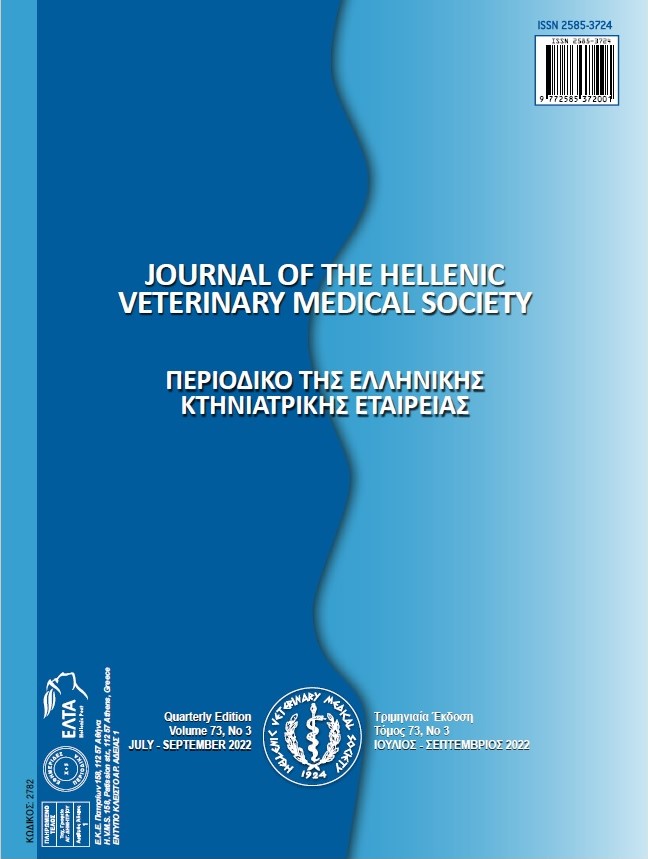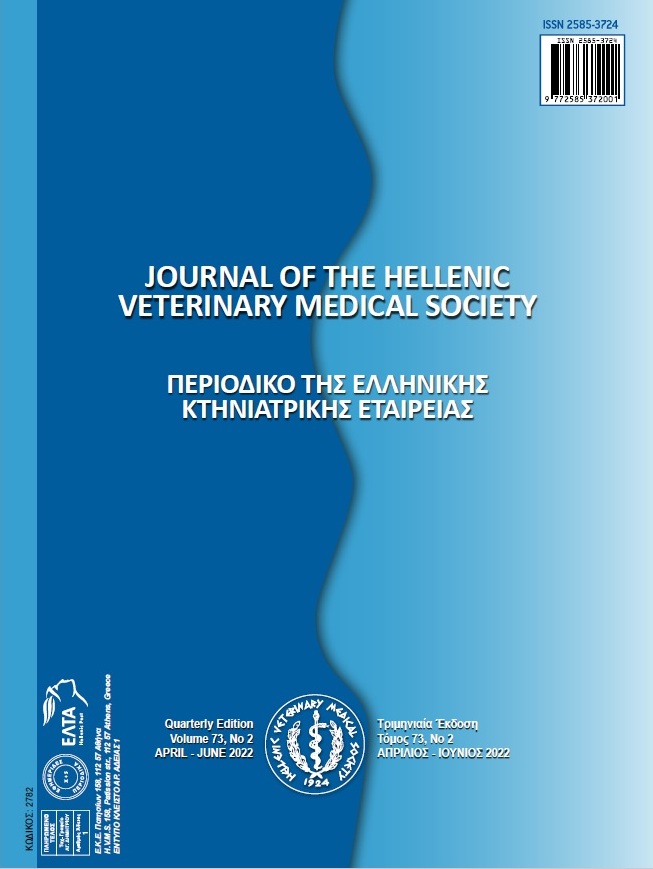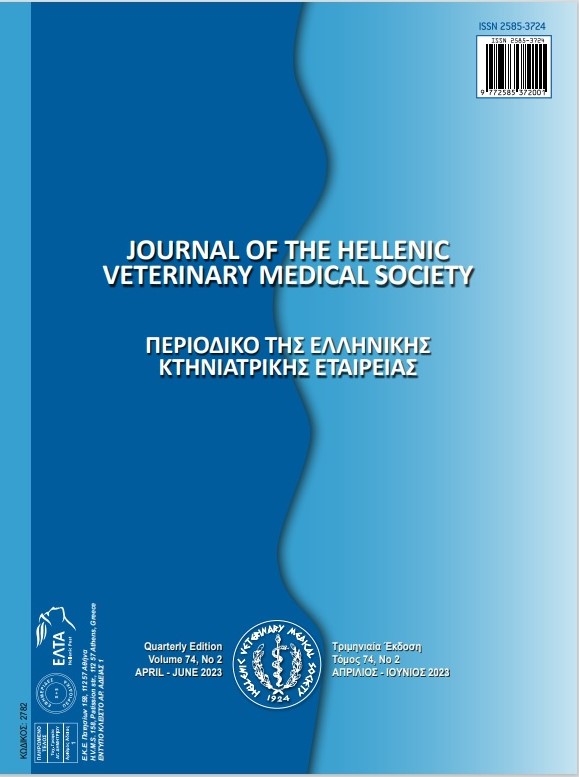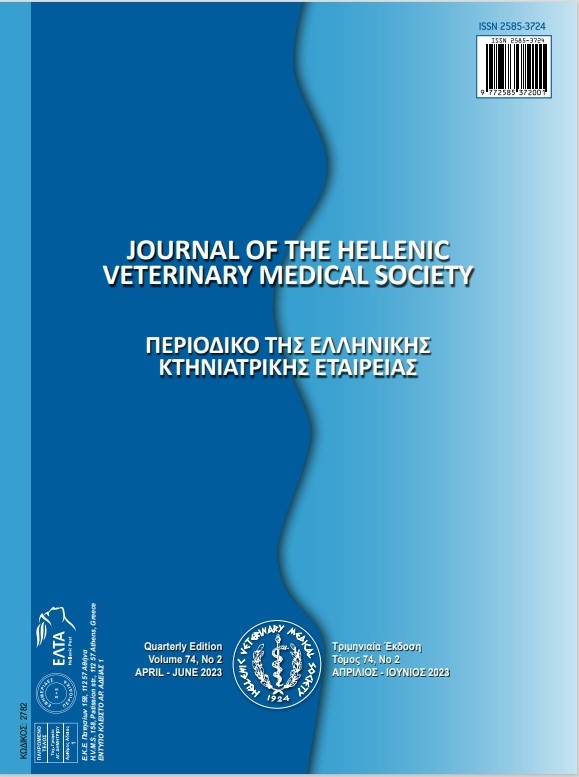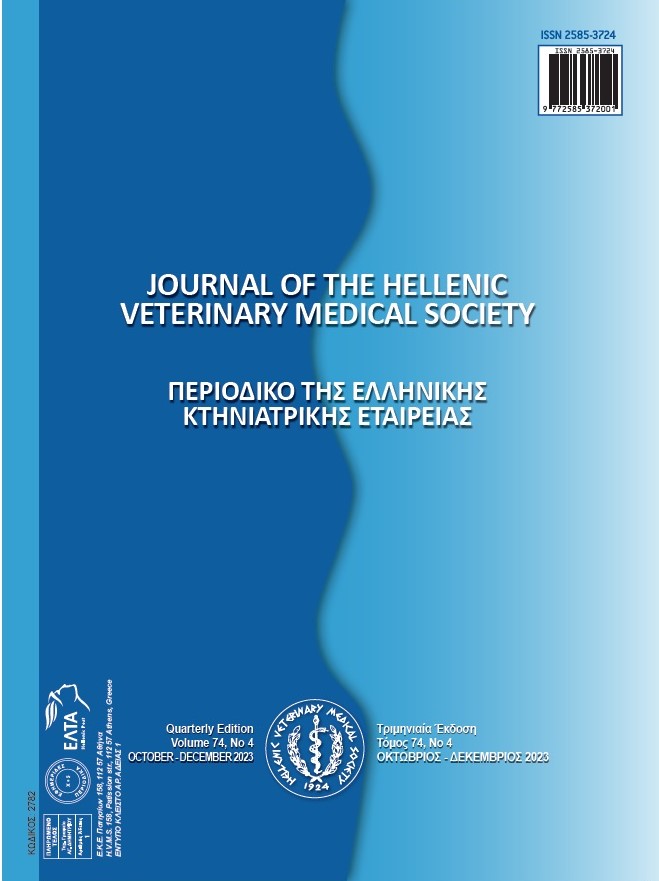Serological survey of Chlamydia abortus in Greek dairy sheep flocks
Resumen
Chlamydiosis due to Chlamydia abortus is one of the most common causes of abortion in small ruminant flocks worldwide. Although the causative agent is zoonotic, chlamydiosis is not a reportable disease. There is lack of recent data concerning sheep chlamydiosis in Greece.
In the current study, a serological investigation for Chlamydia abortus was conducted. Blood samples from 26 randomly selected sheep flocks not vaccinated against chlamydiosis were collected. From each flock, 15 to 20 blood samples were taken from adult female sheep. In total 464 blood samples were examined. One hundred and six samples were positive (22.8%), while 24 samples (5.24%) were doubtful. Moreover, at farm level, in 18 out of the total number of 26 farms, at least one positive animal was detected (69.2%).
Chlamydiosis is considered a highly likely cause of sheep abortion in Greece. Therefore, vaccination of the sheep flocks is strongly recommended for the prevention and control of the disease.
Article Details
- Cómo citar
-
Petridou, E., Kiossis, E., Chochlakis, D., Lafi, S., Psaroulaki, A., Filippopoulos, L., Baratelli, M., & Giadinis, N. (2022). Serological survey of Chlamydia abortus in Greek dairy sheep flocks. Journal of the Hellenic Veterinary Medical Society, 73(3), 4593–4596. https://doi.org/10.12681/jhvms.28035
- Número
- Vol. 73 Núm. 3 (2022)
- Sección
- Research Articles

Esta obra está bajo una licencia internacional Creative Commons Atribución-NoComercial 4.0.
Authors who publish with this journal agree to the following terms:
· Authors retain copyright and grant the journal right of first publication with the work simultaneously licensed under a Creative Commons Attribution Non-Commercial License that allows others to share the work with an acknowledgement of the work's authorship and initial publication in this journal.
· Authors are able to enter into separate, additional contractual arrangements for the non-exclusive distribution of the journal's published version of the work (e.g. post it to an institutional repository or publish it in a book), with an acknowledgement of its initial publication in this journal.
· Authors are permitted and encouraged to post their work online (preferably in institutional repositories or on their website) prior to and during the submission process, as it can lead to productive exchanges, as well as earlier and greater citation of published work.

